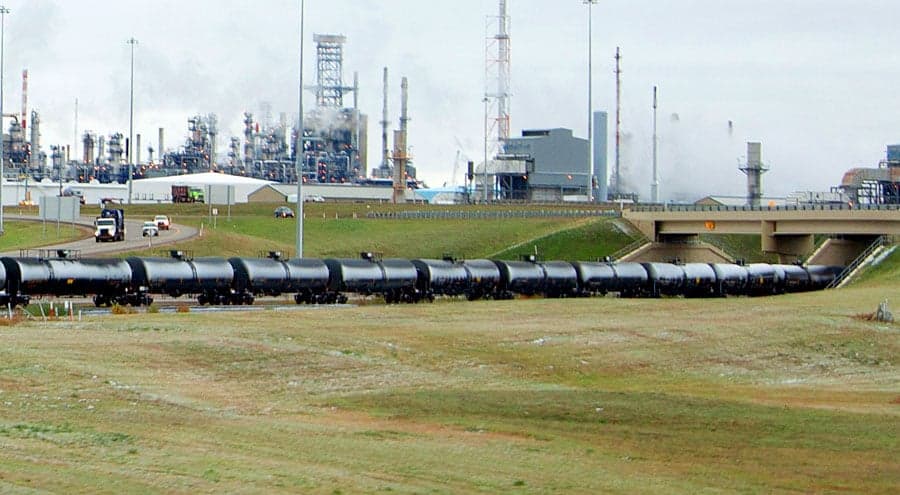“Don’t mistake me — this is not the long-term answer. It absolutely is not. New pipelines are the long-term answer.” -- Alberta Premier Rachel Notley
Alberta will buy rail cars to help ship more crude as pipeline bottlenecks have the oil-rich province grappling with historic low prices.
The province has engaged a third party to negotiate the purchases and a deal may be struck “within weeks,” Premier Rachel Notley said Wednesday in Ottawa. The province’s costs will be fully recouped through royalties and the selling of shipping capacity, she said.
“Don’t mistake me — this is not the long-term answer,” Notley said. “It absolutely is not. New pipelines are the long-term answer.”
Notley’s proposal is one of several put forward by government and industry officials to boost Canadian oil prices by increasing the flow to refineries in the US and elsewhere. Some producers have begun to curb output — and asked the government to mandate cuts — after prices fell to as much as $50 a barrel below the US benchmark. Canadian Prime Minister Justin Trudeau took the unusual step of buying a pipeline project earlier this year to help get enough transport capacity.
About a month ago, Alberta asked the federal government to buy more locomotives. The federal government was said not to favor that plan. Notley has said in recent weeks that her administration may buy the equipment on its own.
Notley said buying two new unit trains could help transport an additional 120,000 barrels a day and help narrow the oil price gap relative to the US benchmark by around $4 a barrel.
“We see the time delay in sourcing rail cars as further evidence that 2019 may be a challenging year for Canadian crudes,” analysts at Tudor, Pickering, Holt & Co., who assisted the Alberta government in evaluating the crude-by-rail option, said in a note.
The province, which last week appointed three envoys to find solutions to the crisis, has a range of options that it’s considering, including adjustments on oil producers’ royalties, Notley said. However, such a move “probably isn’t the best” option, she said in response to reporters’ questions.
Some of Canada’s large oil producers asked Notley last month to consider mandating an industrywide production cut, which would help clear the crude glut and raise prices. But that option has been opposed by the nation’s large, integrated producers, whose refineries are benefiting from the cheaper feedstock.
Longer term, the Canadian oil industry is counting on a trio of pipeline projects to help get more of its oil to market. Those encompass Enbridge’s expansion of its Line 3 conduit, TransCanada’s Keystone XL and the Trans Mountain expansion, which was acquired by the Canadian government.
In the meantime, producers are working on their own to increase rail-shipping capacity and are even shutting in some of their own capacity.
“It’s worth more in the ground than it is to produce it right now,” Athabasca Oil Corp. Chief Executive Officer Rob Broen told BNN Bloomberg Television. “These differentials are so extreme.”

